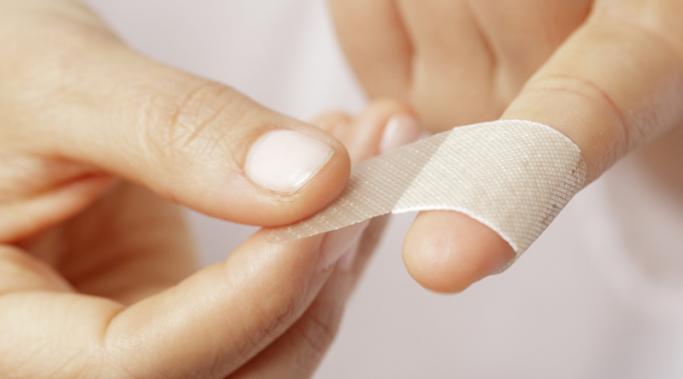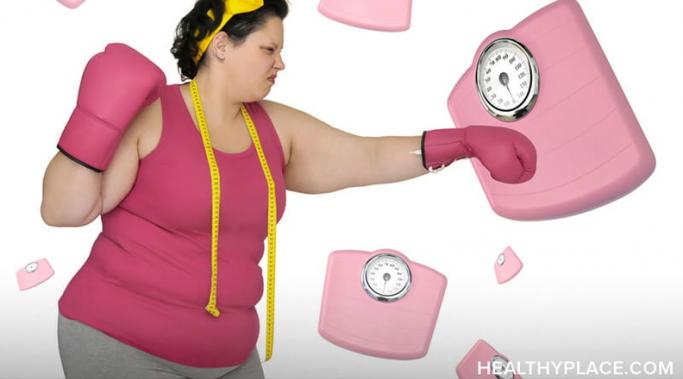Blogs
Before I started taking antipsychotics, I was always really skinny -- I had never weighed more than 105 pounds in my 19 years of life. It was part of my identity. So was being eccentric -- a lot of my identity revolved around being what would now be called the manic pixie dream girl. In case you haven't heard of this particular dream girl, think of Zooey Deschanel or Kate Hudson in "Almost Famous." Pretty and petite, yet whimsical and quirky. But now I deal with schizoaffective disorder and weight gain.
Communicating effectively is important for a healthy self-esteem, making and maintaining friendships, relationships, social interaction and speaking up for yourself. Communication effectively is a skill that you can learn, and it will get better with practice. As you improve your skills, you’ll communicate with more confidence and your self-esteem will be better. Here are some tips on communicating effectively.
My anorexic brain is positively screaming at me not to write the next sentence of this because it is so shameful. I have gained weight. Don’t be mistaken – I have been maintaining a healthy weight for my body for almost a year so this weight is extra, unnecessary, too much. My brain is shouting, “Fat!” at me almost 24 hours a day. Right now, more than anything, I’d love to scrap my recovery and throw myself headlong into eating disorder behaviors. But I have to focus on recovering from my eating disorder even when I want to quit.
When you are filled with intense emotion, your brain tends to think in ways your body is not used to. You start to see your surroundings through a foggy lens and your thoughts are not the clearest to decipher. You may think back to a time when you felt similar emotions and that self-harm flashback could cause you to fall back into self-injury.
The teenage years are never easy, but when you have a teen who is demonstrating a number of behavioral problems, being a parent during this time can be even more difficult. Having a teenager who is violent, engages in reckless behavior, or uses drugs and/or alcohol can leave you feeling at a loss for what you can do to correct these deviant behaviors. You may have many sleepless nights where you lay awake wondering what trouble your child is going to get into next, worrying that he or she may severely hurt him or herself, and trying to think of anything you can do that might help the situation.
Recently I had an upper endoscopy to find out why I was having stomach pain and nausea. The study basically confirmed what I already knew--there is inflammation in my stomach. Someone remarked to me "It must be good to know it's not all in your head!" That made me think about what often happens when psychiatric patients need medical treatment.
I’m very open about my condition. I even write about it on Facebook and volunteer information in class. And I like calling myself “a borderline.” The peculiar self-reference is deliberate. For a while I subscribed to the idea that we are not our diseases—we are not borderline, we have borderline—and to be fair, I still do; however, I also think there’s power in language and have decided to reclaim "borderline" to reduce stigma.
In the realm of self-harm, happiness is sometimes just as much a battle as the fight against self-injury. Maintaining a sense of positivity in your life can be as difficult as turning away from the self-harm urges and triggers that follow your every move. When you are struggling with severe depression, self-harm may become more of an everyday occurrence because it has been the coping skill you have always turned to (even though unsafe and unhealthy). But self-harm is a Band-Aid, and your can't put a Band-Aid over unhappiness.
Parents have a huge role in the development of self-esteem. You can help your child feel confident and develop strong self-esteem with these simple tools that make a big impact.
It might seem obvious that starvation diets, restricting food to the point where you are not taking in enough calories for your body to properly function, is a bad idea. But when you have an eating disorder and you're desperate to lose weight, sometimes you do things that are definitely not good ideas. But starvation diets don't work in the long term and will only hurt your body. Although starvation diets are popularly linked with anorexia nervosa, people with other eating disorders can experience this as well.










I believe she will only be able to rid herself of her demons, and hopefully her BPD as well, when she's ready to confront the abuse of her father. If she can put the blame where it belongs, she may stop projecting that victim/perpetrator cycle on the present men in her life. These demons are a metaphor for the purgatory she has created for herself. That reality has consequences in the real world, but it need not be real in the tangible sense. Exorcising her demons will require the expenditure of real physical energy and probably the destruction of aspects of her personality. If this ever happens, and it's possible but not probable, then these demons will evaporate. They are only as real as one's personality is real. In short, reality is not the question, it's what you make of the things you feel to be real.